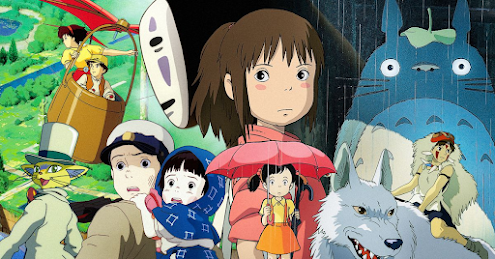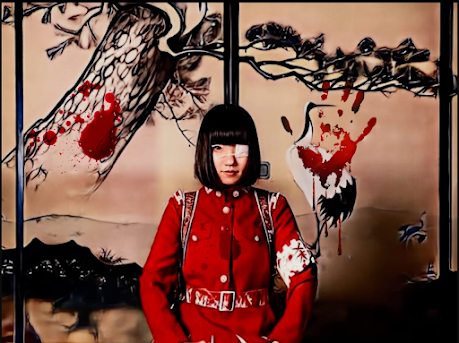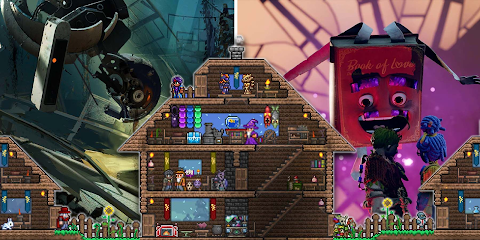The Psychology of Studio Ghibli
Studio Ghibli is a renowned Japanese animation studio that has captivated audiences around the world with its imaginative storytelling, breathtaking visuals, and memorable characters. Founded by Hayao Miyazaki and Isao Takahata, Studio Ghibli has produced numerous critically acclaimed films that have become beloved classics. Beyond their visual appeal and enchanting narratives, Studio Ghibli movies often delve into deeper psychological themes, resonating with viewers on a profound level. In this article, we will explore the psychology behind Studio Ghibli's films, analyzing how they tap into the human psyche and provide valuable insights into various aspects of our lives.
Studio Ghibli films transport us to vibrant and enchanting worlds where the boundaries between reality and fantasy blur. These animated masterpieces have a unique ability to captivate audiences of all ages, allowing us to delve into the recesses of our imagination and explore the human experience from various perspectives. As we embark on this exploration of the psychology of Studio Ghibli, we will uncover the underlying psychological principles and profound messages embedded within their films.
The Power of Imagination: Nurturing Creativity and Wonder
One of the defining aspects of Studio Ghibli's movies is their celebration of imagination. Films like "My Neighbor Totoro" and "Spirited Away" emphasize the importance of nurturing creativity and wonder in both children and adults. By immersing us in enchanting worlds filled with magical creatures and awe-inspiring landscapes, Studio Ghibli encourages us to embrace our imaginative capacities, fostering a sense of curiosity and opening doors to new possibilities.
Nature and the Environment: Finding Harmony and Connection
Studio Ghibli movies often depict a deep connection between humans and the natural world. Films like "Princess Mononoke" and "Ponyo" explore themes of environmentalism, highlighting the consequences of human actions on nature. By showcasing the interdependence between humans, animals, and the environment, Studio Ghibli encourages us to reflect on our relationship with nature and the importance of living in harmony with the Earth.
Coming of Age: Identity, Self-Discovery, and Personal Growth
Many Studio Ghibli films revolve around coming-of-age stories, where protagonists embark on journeys of self-discovery and personal growth. Whether it's Chihiro in "Spirited Away" or Shizuku in "Whisper of the Heart," these films capture the universal struggles and triumphs of adolescence. By portraying complex and relatable characters navigating the challenges of finding their identities, Studio Ghibli offers valuable insights into the human psyche and the transformative power of self-discovery.
Loss, Grief, and Resilience: Coping with Life's Challenges
Life is full of trials and tribulations, and Studio Ghibli does not shy away from addressing the difficult emotions associated with loss and grief. Films like "Grave of the Fireflies" and "The Wind Rises" tackle these themes with sensitivity and nuance, portraying the resilience of the human spirit in the face of adversity. By acknowledging the pain and exploring the various ways individuals cope with loss, Studio Ghibli imparts profound lessons about the human capacity for resilience and hope.
Themes of Empathy and Compassion: Understanding Others and Building Relationships
Studio Ghibli movies emphasize the importance of empathy and compassion in fostering meaningful connections with others. Whether it's the friendship between Mei and Satsuki in "My Neighbor Totoro" or the bond formed between the characters in "Kiki's Delivery Service," these films showcase the transformative power of understanding and supporting one another. By depicting characters with depth and emotional complexity, Studio Ghibli encourages us to embrace empathy as a pathway to building stronger relationships.
War, Conflict, and Pacifism: Confronting the Complexity of Human Nature
Some of Studio Ghibli's films tackle weighty subjects such as war, conflict, and pacifism. "Grave of the Fireflies" and "The Tale of the Princess Kaguya" delve into the devastating consequences of war and the enduring impact it has on individuals. By confronting these complex aspects of human nature, Studio Ghibli prompts us to reflect on the true cost of conflict and advocates for peace and understanding.
Conclusion
Studio Ghibli's movies have left an indelible mark on the world of animation and storytelling. Through their imaginative narratives, rich character development, and profound themes, they have captured the hearts and minds of audiences worldwide. From the power of imagination to the exploration of complex emotions, Studio Ghibli films provide valuable psychological insights into the human experience, encouraging self-reflection and fostering empathy and compassion.




Comments
Post a Comment